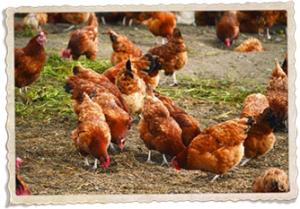Feather pecking is a common behavior amongst birds, especially backyard chickens. However, it’s not necessarily a healthy behavior. Feather pecking mostly occurs when chickens are bored or stressed, and it can cause harm on their overall health. Here, we discuss everything you need to know about feather pecking so you can avoid it in the future.
What is feather pecking?
Feather pecking is exactly as it sounds—it’s when chickens peck at each other’s feathers. A little bit of pecking is normal as your chickens establish a pecking order. However, when your chickens keep pecking each other and start drawing blood, that’s when you have to worry.
What causes feather pecking?
Feather pecking can be caused by a wide variety of factors. Here are the most common:
- Boredom: This is the most common cause of feather pecking. If your chickens are bored and have nothing to entertain them, they will start pecking at one another.
- Stress: Birds that are stressed due to environmental factors, crowded coops, lack of nutrients, and more will peck at each other. Be sure that your chickens have enough space to roam and have everything they need to be happy and healthy.
- Annual Molt: Chickens molt every year, usually around the end of summer and beginning of fall. Other chickens may be attracted to the emerging quills and reddened skin and begin pecking at it.
What can you do?
Finding out the cause of feather pecking is the first step towards resolving it. If it’s boredom, provide opportunities to entertain your birds by giving them plenty of space to roam or free-feeding your birds. If stress is the culprit, then make sure you are providing them with the proper environment and resources to be happy. For instance, giving your chickens enough space and providing the necessary nutrients of a healthy diet can help curtail pecking. Finally, if molting is the reason, then separating molting birds from non-molting birds for the time being.
For more tips on how to care for your backyard chickens, read through our blog or contact Chickens for Backyards today!

